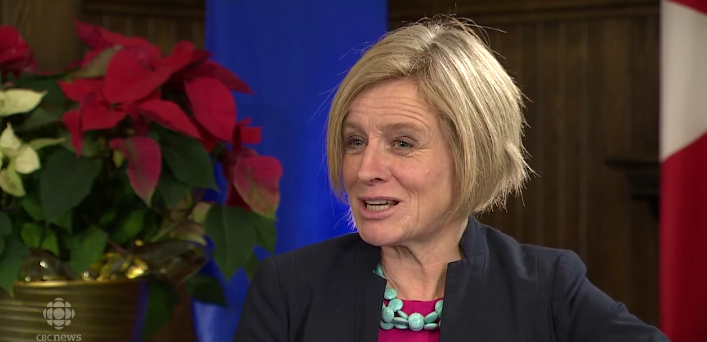
“I don’t know I wasn’t prepped for that”
Alberta Premier Rachel Notley is a wonderful public speaker and media interview. She’s knowledgable, she’s strategic, she comes across warm, and like any other executive leader – she’s very human.
In her 2018 Year-End-Review Interview with CBC Calgary’s Rob Brown she found herself asked a statistical question that she didn’t know the answer to off the top of her head. Here’s the transcript from CBC’s web site:
Q: Do you know if we’ve had a decrease in car emissions during that time?
Rob Brown
A: I honestly can’t tell you right now because I wasn’t prepped for that. What I can say is just yesterday, through our CLP [climate leadership plan], we had our second and third auctions for renewable energy.
AB Premier Rachel Notley
Here’s a link to the CBC interview, the exchange begins at 6:20.
In media training it’s always stressed that if you don’t know the answer to something, it’s far better to ackowledge you don’t know it right on the spot than to invent an answer. But for executive-level leaders this can be embarrassing. Sometimes, such as in the Premier’s case, an executive should know the answer because it’s the point of the executive strategy or it’s a common measuring stick. Measuring reductions in vehicle emissions as a result of a carbon tax, though technical experts may not really like it, is a common measuring stick. The Premier should have known it and she should have been prepped for it.
Sometimes you’re asked a question and it’s just professionally embarassing to say “I don’t know.” So what to do? You might first try a bridge answer such as “What I can tell you is…” then bridge to something you’ve been prepped to share. The Premier actually does this but she doesn’t do it right away, first offering the awkward “prepped” response. If you use this technique often reporters will just let it go. In this case, the journalist is veteran Rob Brown who would have noticed the misdirection and could have come back to the question but he does empathize with not knowing the statistic just a few seconds later. It’s entirely possible he would have let it go.
The Premier’s response about not being prepped, however honest, is awkward and could be interpreted to deflect blame onto her staff. That’s never a good idea for an executive.
Another technique she could have used is what my colleague Eric Bergman has coined as “Pause – Answer – Stop.” If she had taken a moment to mentally register that she didn’t know the statistic, she could then have transitioned quickly into “What I can tell you is…”
Want more media tips? Have a look at our media training page and our book “The Modern Approach to Media Relations – Game Plan.”